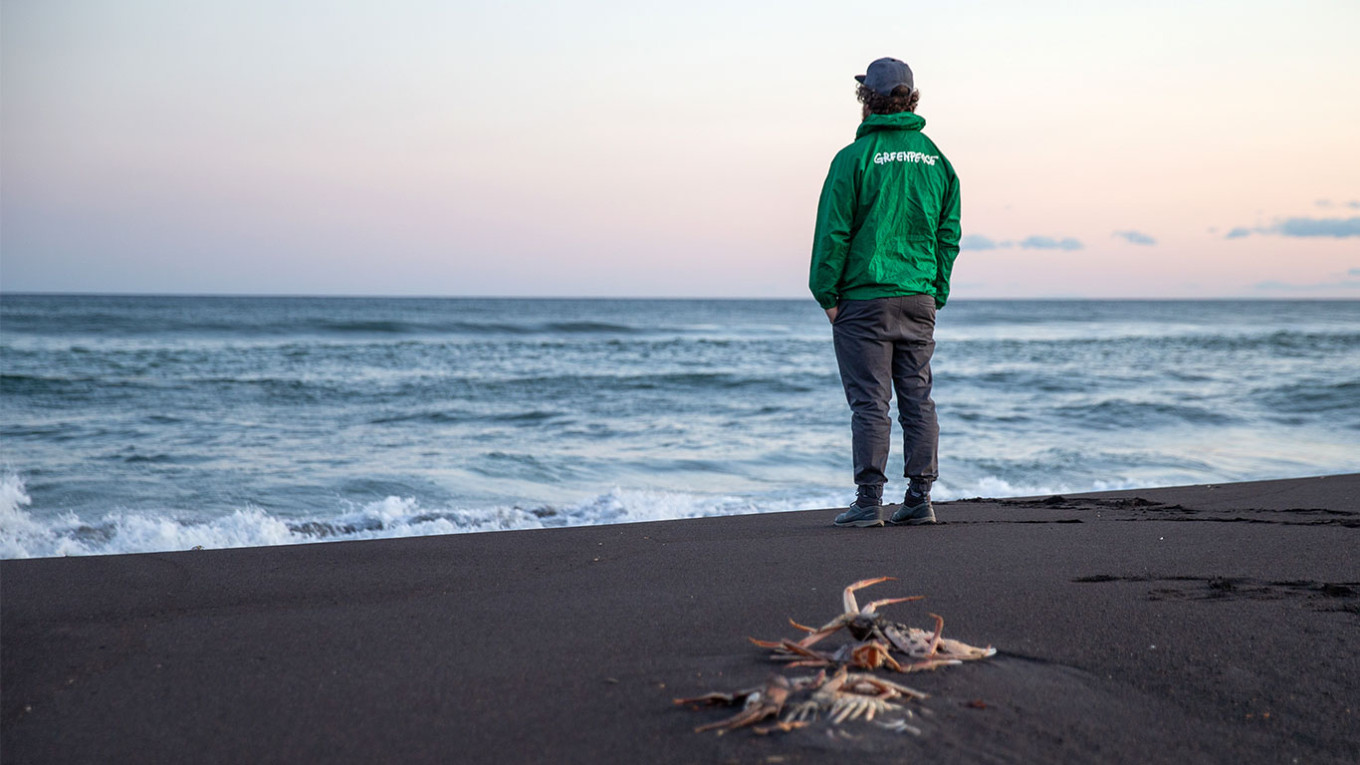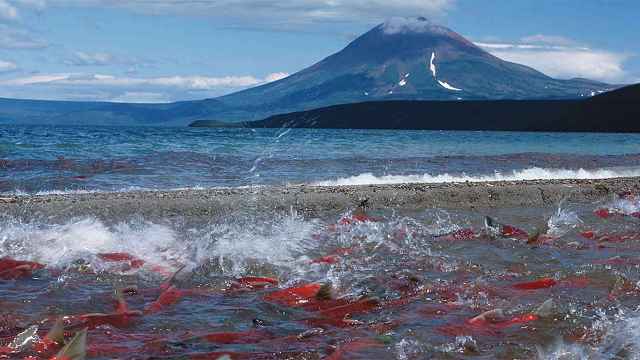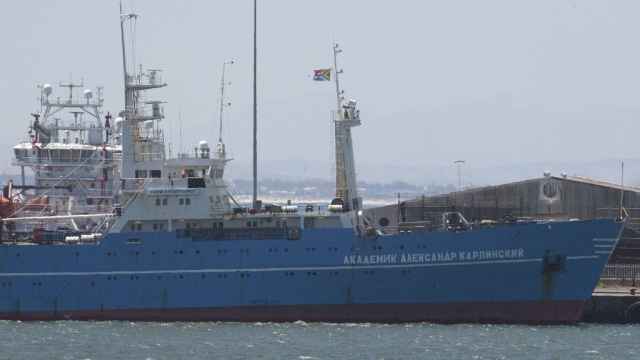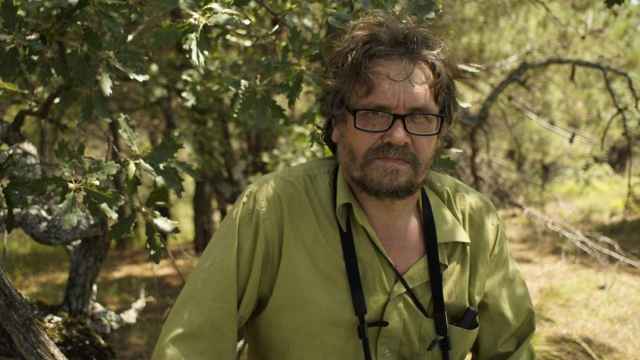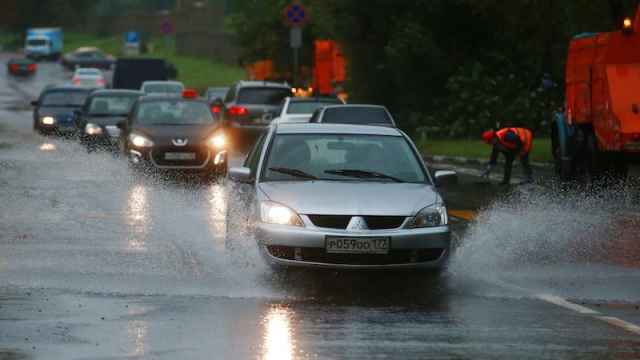For the Russian environment, 2023 might go into the history books as the year when the Kremlin effectively dismantled those groups that had been the loudest independent voices on ecological issues and had the largest public support base.
As part of a wider anti-Western stance, this year Russia labeled prominent international NGOs such as Bellona, Greenpeace and the World Wildlife Fund “undesirable.” All had been present in the country since the Soviet collapse. This designation effectively banned them from working in Russia and deemed any form of cooperation with them a crime.
“The work of professional organizations that operated at the federal level has indeed been eliminated,” Vitaly Servetnik of the Environmental Crisis Group, a project supporting Russian environmental defenders, told The Moscow Times. “Apparently, in the Russia of 2023, advocacy on any issue [at the federal level] is impossible.”
While 2023 marked the end for local branches of international NGOs seeking to address local problems and engage Russia on global issues — such as climate change mitigation and biodiversity conservation — the Kremlin’s crackdown on environmental advocates started much earlier.
Beginning in 2014 with Ecodefense, one of the country's oldest environmental groups, Russian authorities added dozens of local and national NGOs and initiatives to the list of “foreign agents.”
Carrying a negative Soviet-era stigma, this status was nonetheless manageable for some — they continued to work, albeit with limitations and extra bureaucratic burdens. For others, such a label prompted a full closure, as the harsher “undesirable” status would do for their colleagues in 2023.
The story of Norway-based environmental NGO Bellona in Russia began with “unfriendly relations” with the authorities, Ksenia Vakhrusheva, a project manager at Bellona who started volunteering for the organization in 2010, told The Moscow Times.
When Bellona opened offices in Murmansk and St. Petersburg in the early 1990s, it encountered “fierce resistance” particularly after it brought attention to the risks of radioactive contamination from abandoned nuclear waste in Russia’s Far North, which prompted a harsh response from the Federal Security Service.
In 1996, Bellona employee Alexander Nikitin was arrested in St. Petersburg and accused of treason, allegedly through the disclosure of national security information. He was acquitted in 2000 following a long legal battle.
In the same year as Nikitin’s arrest, on the other side of the country on Sakhalin island, around nine hours from St. Petersburg by plane, a life-changing conversation was taking place.
Dmitry Lisitsyn, today a member of the independent Expert Council on Nature Reserve Management, was meeting with Emma Wilson of Friends of the Earth, an international network of environmental organizations. That encounter, he said, changed the course of his life forever.
“Emma explained to me how the global environmental movement functions, and how one can influence society, government and business to not destroy nature,” Lisitsyn said.
“Before that, I was struck by our common Russian ailment — a complete lack of belief that you can change anything.”
Realizing that even a single person can change the world, Lisitsyn said he felt that this is what he wanted to dedicate his life to.
The timing was favorable: the “roaring 90s” in Russia was a period of unease after the Soviet collapse but also of new beginnings.
The mid-1990s saw a boom in charitable financing for environmental NGOs worldwide, with a tremendous interest in Russia, Lisitsyn recalled. The country saw an influx of organizations including Greenpeace and the WWF.

In 1996 he joined Sakhalin Environment Watch (SEW). He worked on projects to defend vulnerable Sakhalin forests and spawning rivers, ensure the strictest protection regime for natural areas and force corporations like Shell to reroute underwater pipelines away from gray whale feeding grounds.
Throughout this time, authorities showed a willingness to cooperate with environmentalists: Lisitsyn was part of numerous public councils at government bodies and even conducted joint operations with law enforcement agencies against poachers.
Meanwhile, in the mid-2000s, Bellona embarked on an effort to change the unsympathetic attitudes it faced.
“Since Bellona's approach to solving environmental problems is based on finding dialogue between citizens, the government and businesses, we also tried to apply it in Russia,” Vakhrusheva said.
The organization worked with authorities and the state nuclear corporation Rosatom on proper disposal of hazardous radioactive waste in the north, which at times resulted in “situational understanding.”
Bellona also put efforts into citizen education, such as holding contests for the best environmental lawyer, a specialization that did not yet exist in Russian law schools.
A free legal consultation service for anyone looking to defend their environmental rights addressed hundreds of appeals annually.
Vakhrusheva witnessed sustained growth of public interest in environmental issues in Russia — even in topics long seen as unpopular, such as renewable energy.
For SEW, things changed unequivocally in September 2015 when it was labeled a “foreign agent” for the first time.
“It was very hurtful, because we were never foreign agents in our lives, and all of our activities were aimed at the well-being and interests of the Russian people,” Lisitsyn said.
In order to be able to continue to work, the group had to let go of its foreign funding, even returning a donation to the Leonardo DiCaprio Foundation.
“It was extremely offensive for both [the Foundation] and us. They couldn't comprehend for a long time how such a thing could even be possible.”
Deprived of a significant source of donations, the group still managed to continue conservation work for seven more years.
One example is the Freedom for Orcas and Belugas campaign, which in 2019 secured the release of around 100 illegally captured whales in the Far East.
While Russia’s Justice Ministry removed SEW’s “foreign agent” label in 2017, the group was hit with the same designation again in December 2022 — condemning it to closure.
“Times are not chosen, but one can choose how to live in these times. Unfortunately, our only choice today is to finish up our projects and liquidate the organization,” SEW said in a statement at the time.
For the Russian branch of Bellona, the turning point came even before the “undesirable” status — it was the moment of the Russian invasion of Ukraine in February 2022.
Then the organization decided to shut down its offices in Russia and relocate staff to Lithuania, as it was no longer ethically acceptable to engage with the authorities, Vakhrusheva said.
For her, the news that Bellona was declared “undesirable” in April 2023 was not surprising — she and her colleagues had expected it for some time. Moreover, Bellona at that point had already been named a “foreign agent.”
Vakhrusheva herself had left Russia in 2014, seeing a long-term negative trend and no possibility to lead a “normal life” in her home country.
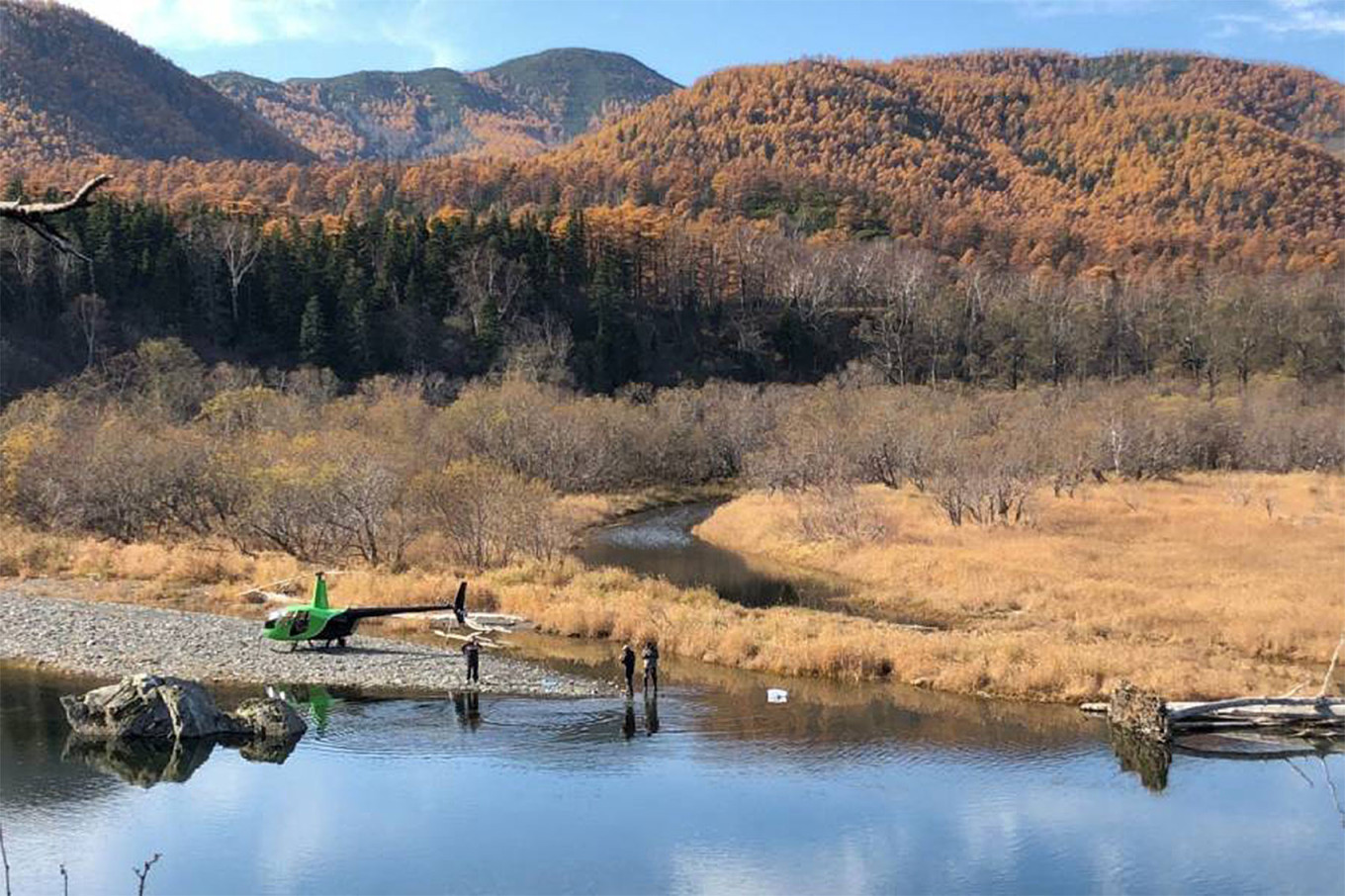
She said she does not expect to come back any time soon, as working for an undesirable organization is punishable by criminal prosecution.
No longer involved in changing things for the better from inside Russia, Bellona turned into an external observer of the country’s activities that can potentially impact the global climate or lead to cross-border pollution.
As international environmental groups have been outlawed and individual activism has become a dangerous undertaking, one may wonder if there is still a way to protect nature in Russia.
Some Russian environmental organizations strive to keep up their conservation efforts, but the question remains for how long and in what form their activities can continue without outraging the Kremlin.
Still, advocacy remains possible at the grassroots level, experts agreed.
“It seems to me that the Kremlin is trying to maneuver at the regional level because it is impossible to explain to people that clean air is a 'Western' value,” Servetnik said.
Vakhrusheva also sees the possibility of environmental activism on a community level, although it will be hard to achieve systematic change.
“There will be some local victories on the ground: to defend a park, clean up a dumpsite, maybe even rein in a plant that irresponsibly emits pollutants. But to make institutions, legislation, and courts work uniformly in all regions — that's impossible under the current regime,” Vakhrusheva said.
Lisitsyn pointed to waste separation and animal rights as examples where change could still be possible.
“The authorities don't particularly welcome actions that lead to public outrage. This is where the space for the preservation of civil movement lies,” he said.
Despite the end of Sakhalin Environmental Watch, Bellona, Greenpeace, WWF and many others, Lisitsyn said he still has hope, as periods of stagnation and declining civil liberties in Russia are often followed by stages of “vibrant” democratic growth.
“The attitude toward nature is undoubtedly a good indicator of the relative moral health of society. And in Russia, a circle of people with steadfast moral principles and values has formed nonetheless,” Lisitsyn said.
“This allows us to endure what's happening, to remain human and to quickly recover [in the future] in terms of civility.”
A Message from The Moscow Times:
Dear readers,
We are facing unprecedented challenges. Russia's Prosecutor General's Office has designated The Moscow Times as an "undesirable" organization, criminalizing our work and putting our staff at risk of prosecution. This follows our earlier unjust labeling as a "foreign agent."
These actions are direct attempts to silence independent journalism in Russia. The authorities claim our work "discredits the decisions of the Russian leadership." We see things differently: we strive to provide accurate, unbiased reporting on Russia.
We, the journalists of The Moscow Times, refuse to be silenced. But to continue our work, we need your help.
Your support, no matter how small, makes a world of difference. If you can, please support us monthly starting from just $2. It's quick to set up, and every contribution makes a significant impact.
By supporting The Moscow Times, you're defending open, independent journalism in the face of repression. Thank you for standing with us.
Remind me later.


